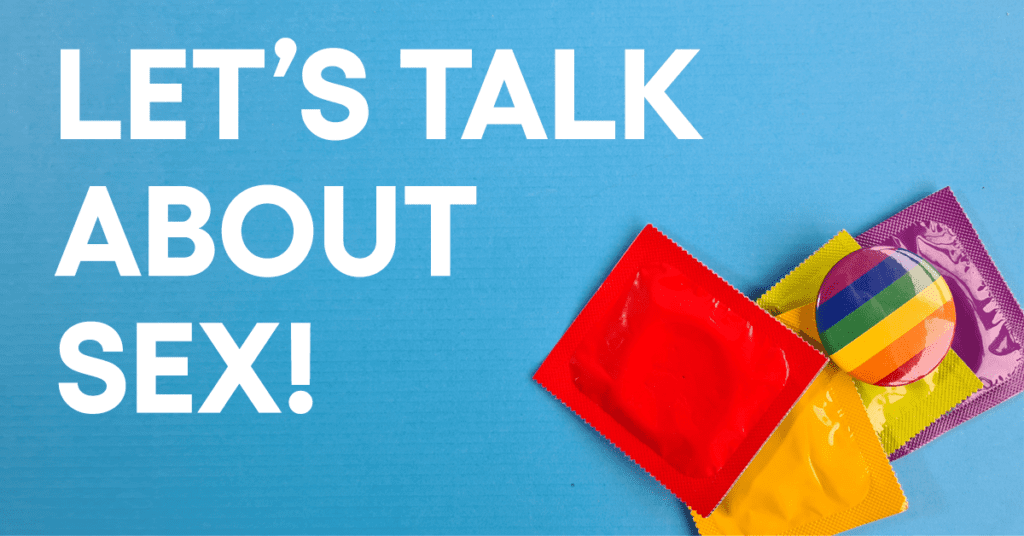
September is National Sexual Health Awareness Month! That means it’s the perfect time to talk about safe sex. Having sex is a healthy part of being human, but we want you to be informed and be able to make smart decisions about having sex. Sometimes it can be hard to have conversations about sexually transmitted diseases (STDs). When’s the last time you were able to talk to your provider or your partner(s) about STDs and how much do you know? Let’s cover the basics!
STDs can also be known as sexually transmitted infections (STIs) and even though not talked about often they are actually very common. In fact, according to the Centers for Disease Control and Prevention (CDC), millions of new infections occur every year in the United States.
How do people get STDs/STIs? They can be passed from one person to another through vaginal, oral, and anal sex. Some common STDs are Chlamydia, Herpes, and Gonorrhea. STDs don’t always cause symptoms, so you may not know you have one unless you get tested. It’s important to get tested regularly and have conversations about STDs with your partner(s) to make sure you are not at risk of getting one. STDs are preventable and can also be managed or cured altogether.
Why is it so important to know if you have an STD? If left untreated, STDs can cause serious health issues like blindness, infertility, mother-to-child transmission, or birth defects. Also, if you have an STD you are at a higher risk of getting HIV. This could be because of your sexual practices like not using protection or because you have symptoms of an STD that include an open sore.
If you are sexually active, you can prevent yourself from getting an STD with a couple of easy steps. So, let’s talk about real life things you can do to stay healthy!
- Use protection. Wear a new condom each time you have sex and make sure you are using them correctly. Learn more about prevention methods with this safer sex tool box.
- Get vaccinated. For some STDs such as HPV, Hepatitis A, and Hepatitis B you can get a vaccine to protect yourself. However, there is an age limit on the HPV vaccine. Be sure to talk to your provider about what is available to you.
- Get tested regularly. When you visit your doctor, ask them for STD testing including a test for HIV.
- Talk to your doctor about HIV. If you receive an HIV diagnosis, ask your doctor about HIV treatment. HIV medicine is called antiretroviral therapy or ART, and if you take it regularly you can stay healthy and prevent the spread of HIV. If you are HIV negative, talk to your doctor about ways to prevent HIV. Ask about pre-exposure prophylaxis (PrEP) and post-exposure prophylaxis (PEP). PrEP and PEP are medications you can take to lower your risk of getting HIV. ART, PrEP, and PEP will not protect you against other STDs.
- Talk with your partner(s). Having open and honest conversations about sex and health with your sexual partner(s) doesn’t have to be scary. There are fun ways to include STD prevention in your conversations. For example, you can ask your partner what their favorite condom brand is or what flavor lube they like the best. Starting the conversation with questions like this can help break the ice.
With these steps, you can take the guessing and the worrying out of sex and take control of your sex life! To learn more about STDs and STIs, safe sex, and HIV visit: https://www.ashasexualhealth.org/stds_a_to_z/
